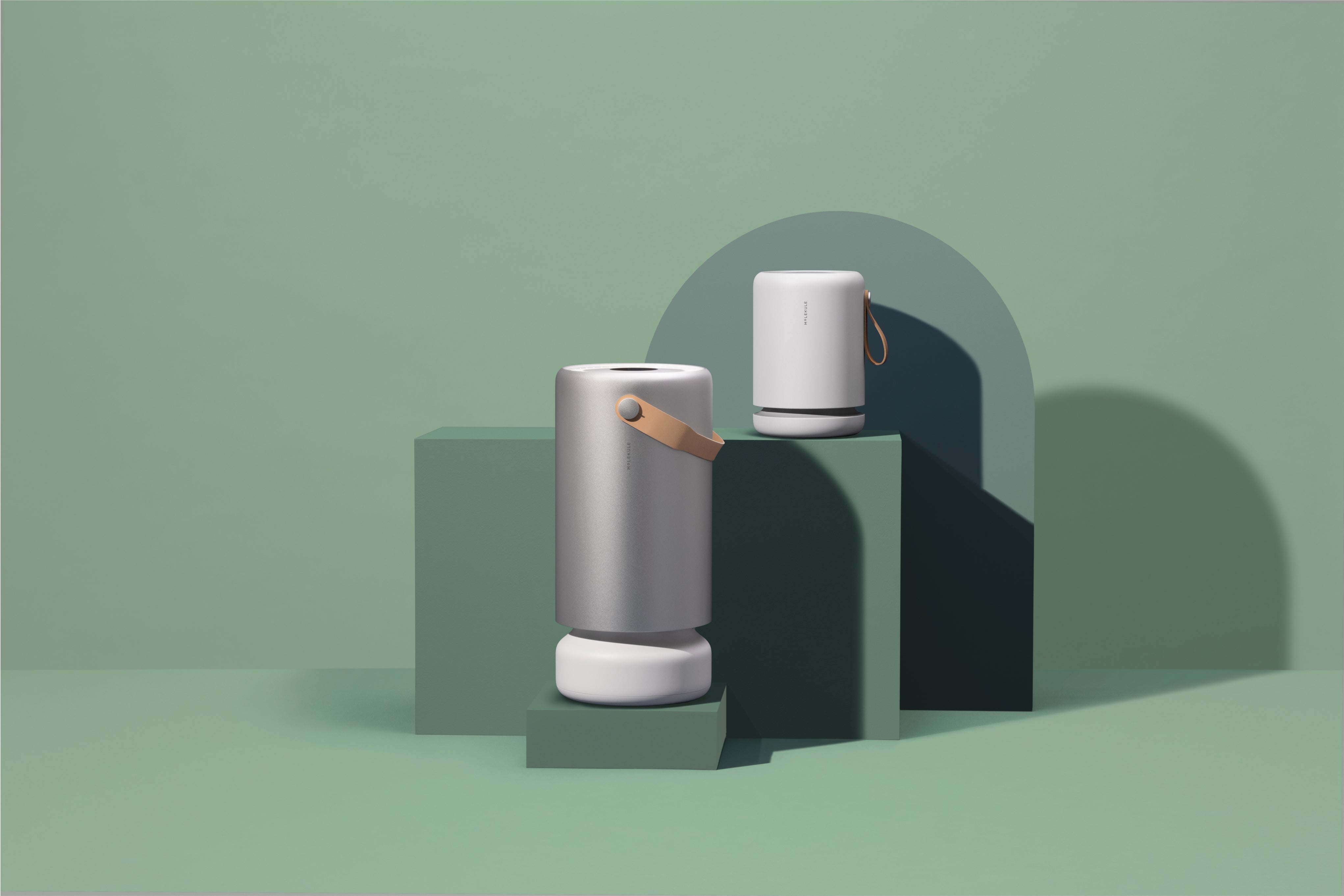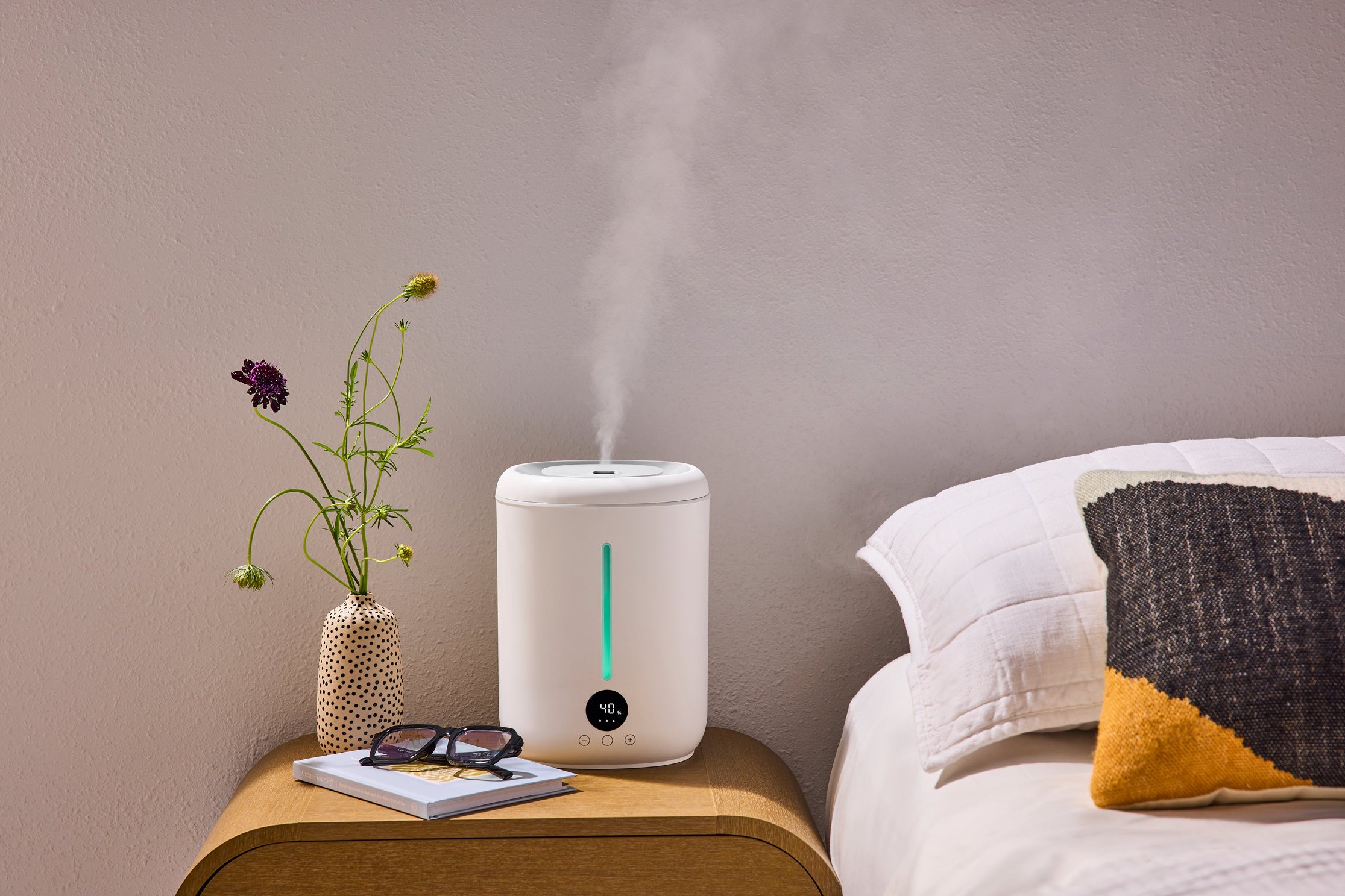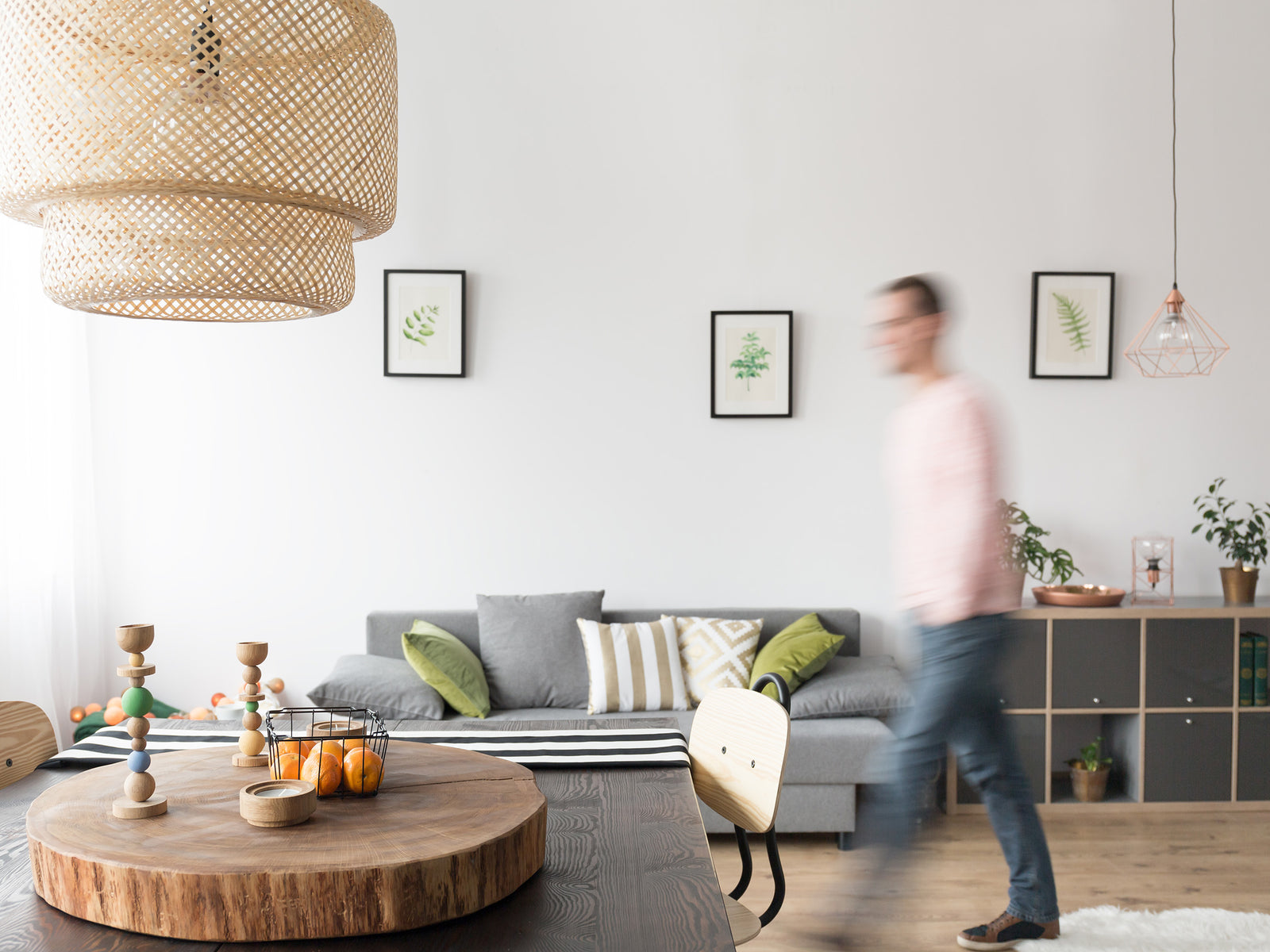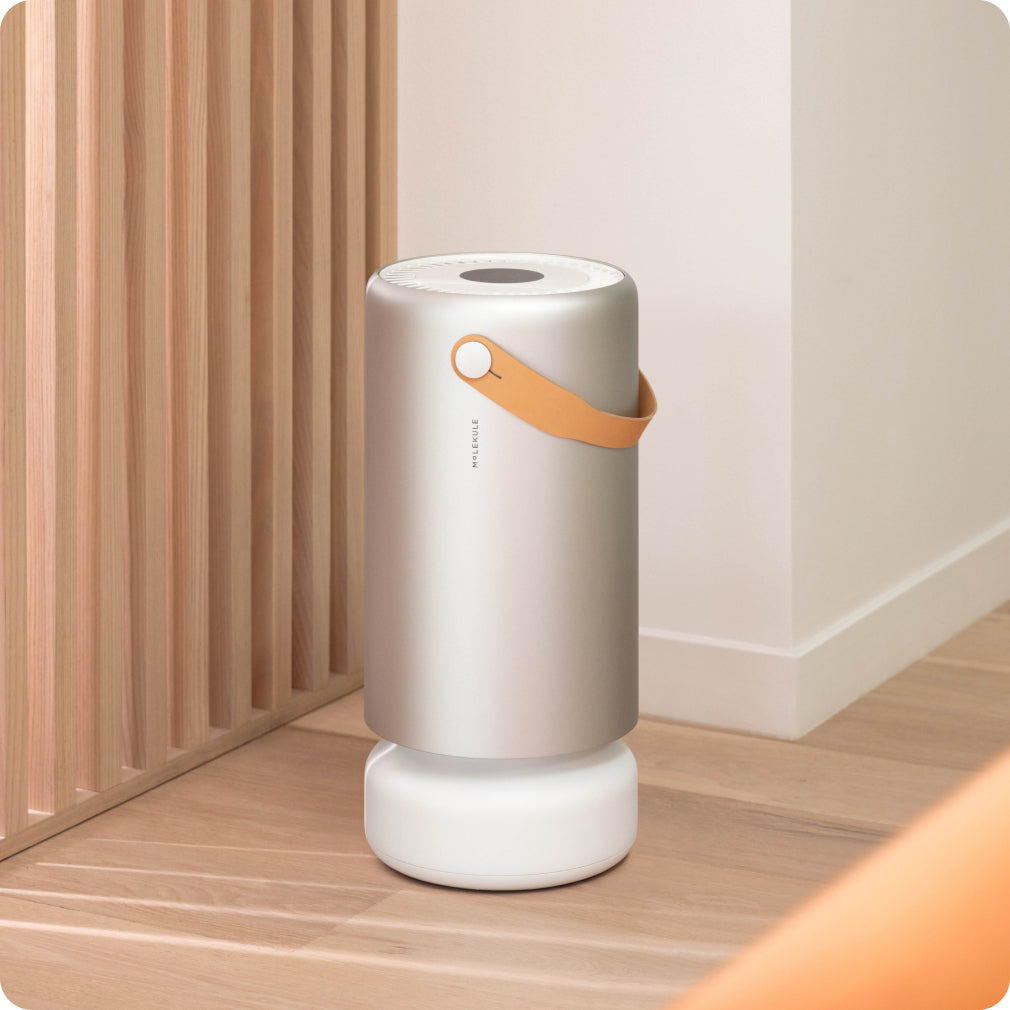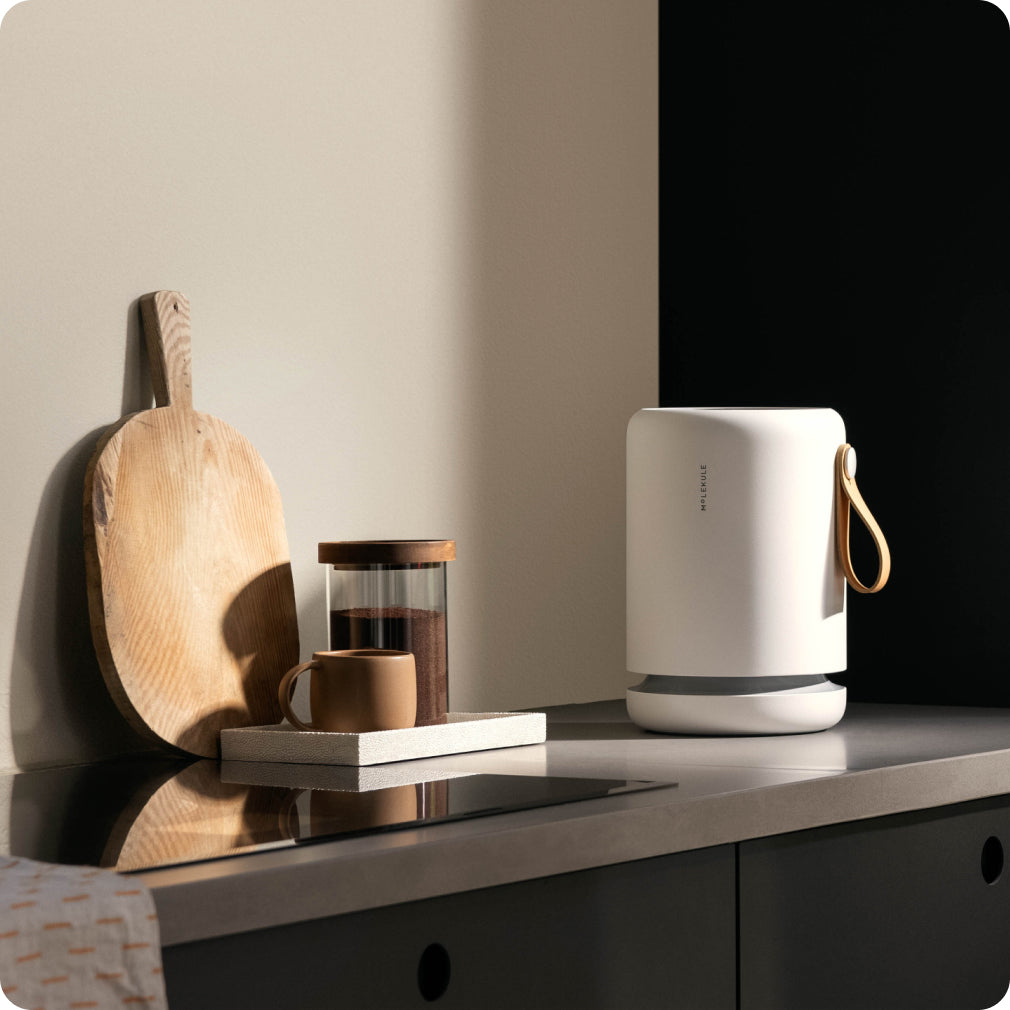Living with allergies or asthma is never easy. You have to think constantly about the quality of the air you’re breathing in order to keep your symptoms in check. When it comes to living in an apartment, indoor air quality becomes an even larger concern. Poor ventilation, the inability to make major changes to your apartment, and more concentrated irritants all pose health risks that are intensified when you deal with asthma or allergies. While you can mitigate air quality problems, you usually can’t eliminate them entirely. This means you have to be vigilant about where you live and the way you manage the air you breathe.
If you’re already living in an apartment, controlling the humidity, keeping your apartment clean and dry, and promoting air circulation are fairly simple ways of improving air quality. If you’re on the hunt for a new apartment, you can understand what to look for to ensure you have healthy air. A good layout, proper ventilation, and upgraded heating and air conditioning units are all must-haves.
The importance of indoor air quality
According to the Environmental Protection Agency, indoor air quality can be more polluted than outdoor air. This may come as a surprise but it makes sense — your apartment is full of potential pollutants that collect in an enclosed space, increasing your exposure and the potential for them to affect your health. Add in a lack of air circulation that keeps these irritants trapped and you’re headed for health problems even faster. Poor air quality in your apartment can cause coughing, sneezing, wheezing, nausea, respiratory issues, and allergic reactions. The good news is that while you may not be able to do much about the air pollutants you’re exposed to outside, you can control those that may be present in your apartment.
Potential air quality problems (and solutions) in an apartment
Living in an apartment presents a unique set of challenges to having healthy air. Smaller floor plans, a lack of control over certain irritants, and more concentrated levels of pollutants in each room can all contribute to poor air quality. For this reason, understanding what the common problems are — and what you can do about them — will help you keep your apartment air healthy (so you can stay healthy, too).
Poor air circulation
Apartments generally do not have as many windows as houses do, making poor air circulation likely. This, in addition to fewer air vents, can mean that there is no natural air flow. Free flowing air is an important component of healthy air because it helps regulate temperature and prevents buildup of mold and dust. When air is humid, it becomes stagnant, trapping the dust particles (along with other air pollutants). One of the most important factors for healthy air is good circulation.
What you can do
To help improve air circulation in your apartment, keep your windows open as much as possible. Using ceiling fans or strategically placed box fans can also help to cross-ventilate. Anything you can do to get air circulating throughout your living space is a good idea.
Small apartment with poor layout
It’s common for small apartments to have windowless bathrooms and/or bathrooms and laundry rooms that are connected. When these “wet rooms” are in close proximity to each other, it can be even more challenging to keep them dry and free of mold and mildew. You may not even realize there is mold in your bathroom — it can grow behind the walls, in tile grout, and even on your shower curtain. The washer and dryer can also grow mold if they aren’t properly dried out. When you breathe in mold particles, you’re at risk for developing a wide range of health problems from coughing to lung infections.
What you can do
If you’re apartment hunting, look for a floor plan that offers a separate, closed off bathroom and laundry room and make sure all bathrooms have a window you can open. It’s also a good idea to make sure both your bathroom and laundry room have a fan.
To keep mold at bay in the bathroom, thoroughly clean everything in it, keep it dry, and use a fan (if at all possible) when you shower or clean. In the laundry room, check the water connections for leaks, remove wet clothes from the washer immediately, and clean out dryer lint and ducts regularly. In both rooms, using a dehumidifier can greatly help in keeping them free of excess moisture.
Humidity
At all times of the year, maintaining good humidity levels is key to keeping your air healthy. In an apartment, this can be hard due to poor ventilation and the closeness of bathrooms and the laundry room to the rest of your living areas. Persistently low humidity can increase the likelihood that you develop respiratory illnesses, colds, and skin irritation. It can also allow certain bacteria and allergens to thrive. On the other hand, high levels of humidity can keep dust mites alive and cause condensation (which can cause mildew and mold), especially in a poorly ventilated apartment. The humidity traps these allergens in the air, making it hard to breathe easy. Humidity levels should fall between 30 and 50 percent, for a healthy range.
What you can do
A good humidifier can help if humidity is too low. To keep humidity from getting too high, a dehumidifier is key. It can also help to use fans or open windows when cooking or showering, to allow drier air to enter your apartment.
Dust and dust mites
No matter what type of home you live in, dust mites will be present. These microscopic pests are known allergens and can take up residence in bedding, furniture, curtains, carpeting, and even pets. In an apartment, you may find the concentration of dust and dust mites to be more concentrated, due to the smaller space and poor ventilation. If you notice a lot of dust in your apartment, it’s safe to assume you have air quality problems.
What you can do
Dusting, sweeping, and vacuuming regularly can help keep dust under control. You should also wash all fabric (like bedding, clothes, curtains, and children’s stuffed animals) regularly — these things collect dust that is then released into the air. Because dust mites love humidity, it’s important to keep your humidity levels within a healthy range.
Outdated heating and cooling systems
If you live in an older apartment building, it’s likely that the heating and cooling systems are outdated. The filters on these units can collect dust and mold and then blow it back out into the air.
What you can do
Though there’s not much you can do about replacing the heating or cooling systems, you can make sure the filters in your unit are replaced regularly. Be sure to check with your landlord on their policies around this. They should be the ones to change the air filters but if they don’t, it’s not a bad idea to spend the money and time to do it yourself, if possible.
Mold and mildew
From your bathroom tiles to the laundry room to living room window sills, the potential for mold and mildew is everywhere. It can seriously diminish the quality of the air in your apartment and cause harm to your health. Apartment living can make managing mold even more challenging than it is normally because mold spores from adjacent units can make their way into your space. Preventing and eliminating mold is a must for keeping your air healthy.
What you can do
The best way to prevent mold is to keep your home clean and dry. Using a dehumidifier, drying off countertops in the bathroom and kitchen, and checking for leaks are all necessary parts of making sure mold doesn’t contaminate the air in your apartment.
Volatile Organic Compounds
Also known as VOC’s, these organic compounds can be found in nearly everything from carpets to cosmetics to cleaning products. Examples of VOC’s include formaldehyde, acetone, benzene, and ethylene glycol. They are released into the air as gases and are detrimental to the health of your air and your body. You won’t be able to eliminate them entirely, but being aware of what can release them into your air can help you know which precautions to take.
What you can do
Use “green” cleaning products, avoid synthetic air fresheners and candles, read the labels on personal care products you use to lessen your exposure to VOC’s.
Combustion Pollutants
Due to the lack of ventilation in many apartments, combustion pollutants like carbon monoxide and nitrogen dioxide are more likely to be present in higher doses than you might find them in a home. These gases are released from appliances like dryers, gas stoves, space heaters, and fireplaces. The amount released is dependent on several factors like how well they were installed, maintained, and which type of gas they use.
What you can do
If at all possible, open a window when you’re cooking or using the dryer. Ideally, you’d have outside ventilation for all heating appliances but, in apartments, this is often not the case. At the very least, use a fan.
What to look for in an apartment
As discussed in our Action Guide to Making Your Apartment Allergy Free, there are several things you can look for in an apartment that will help keep your air healthy. These include:
- Well-ventilated bathrooms and laundry rooms — Having a window or fan in rooms that get damp can go a long way in preventing mold and mildew.
- Plenty of windows — The more windows the better. Opening windows can help lower high humidity levels, allow combustion pollutants to escape, and keep the air in your apartment fresh.
- Wood flooring — Carpeting in an apartment traps dust and dust mites, so opting for wood flooring can help minimize their presence.
- Upgraded heating and cooling systems (and other appliances) — If you haven’t moved in yet, ask how old the heating and cooling units are, when the last time they were replaced was, and if there are any units with upgraded kitchen appliances.
- New faucets and/or pipes — Older apartments are likely to have older pipes, which means leaks are more likely. Check to see how old they are and how they handle leaky faucets and pipes.
Things you may not be able to control
Bad air quality in an apartment is frustrating, to say the least. Whether you’re still apartment hunting or you’ve found out the hard way that there are some things you just can’t control when it comes to apartment living, here are some reminders of things you may not be able to control. It’s up to you to decide if these are deal-breakers.
- Accommodation of your landlord or management company — When you own a home, you can control what you do to ensure healthy air. It’s difficult to expect your landlord or the property owner to accommodate you, for various reasons.
- The type of appliances you have — The washer, dryer, stove, and air conditioning or heating systems that come with your apartment may not be the best for promoting healthy air. While it wouldn’t hurt to request upgrades, it’s not something you can count on.
- How your neighbors manage their air quality — Living in an apartment means that your next door neighbors are literally next door. How they manage mold, dust mites, and other allergens can greatly affect the quality of the air in your apartment.
- Remodeling — It goes without saying that renting an apartment means you can’t renovate, no matter how much a few fixes would improve the air quality. What you rent is what you get — so be sure the floor plan is conducive to healthy air.
Tidy home, healthy air
Apartment living means you can’t make major modifications like widening windows or installing vents to fix air quality problems. For anything major, you’ll be relying on the willingness of your landlord or property management company. Still, despite the challenges you may face, it is possible to manage air quality problems. Keeping your living space dust free, ventilating as much as possible, replacing the filters in your heating and air conditioning units, and using a dehumidifier are all great ways to promote healthy air in your apartment and keep yourself healthy.
